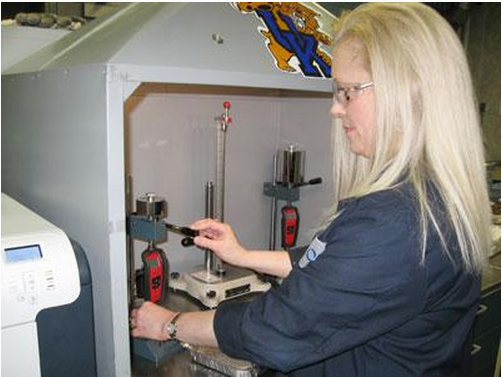Zeon's capacity upgrade bolstering firm's success
LOUISVILLE, Ky.—John Stothard remembers when you would back your car out of the garage and see those tiny, black spots dot the cement floor.
Back then, it was not uncommon for drops of oil to leak from the engine and stain your garage floor.
Not any longer. Thanks to new technology, in part developed by Stothard's company, Zeon Chemicals L.P., those days are history.
“You don't get that (leakage) anymore because of the
technology that goes into the gaskets,” said Stothard, vice president and general manager of Zeon's Elastomers Division, sitting in his office in Louisville.
“The temperature (inside the vehicle) has increased dramatically, but the gaskets keep all the oil in, and you should have nothing on the garage floor, unless you've got an old car,” he said.
The automotive industry continues to be one of the driving forces of Zeon Chemicals, which specializes in heat-resistant and oil-resistant elastomers. The company is a wholly owned subsidiary of Tokyo-based Zeon Corp., which produces elastomers, polymers and specialty chemicals, with combined sales of more than $2.9 billion. It employs more than 3,300 worldwide.
According to Stothard, Zeon's Louisville facility supplies up to half of its products to the automotive sector. Another 10 to 15 percent goes into the oil and gas industry.
“We're looking at ways to reduce fuel consumption,” he said.
It's been more than a year since Zeon completed a capacity expansion at the Louisville plant, which was constructed in the early 1940s as part of the World War II effort. The facility formerly served as a B.F. Goodrich facility that had been divided between units it owned previously, including a Lubrizol Corp. facility and Occidental Petroleum Co. polyvinyl chloride manufacturer.
Successful expansions
In July 2013, Zeon Chemicals expanded its polymerization capacity by 50 percent to produce polyacrylate elastomers for automotive applications such as seals, gaskets and turbocharger hoses. It markets the ACM product under the brand name HyTemp.
“The customer base is there to support it,” Stothard said, “but it's all in China, Southeast Asia and India. That's where the expansion is targeted. It's not a very sexy product, but it's a vital component.”
The company said these elastomers perform in extreme temperatures and demonstrate excellent resistance to a variety of fluids including synthetic engine oils, transmission fluids and diesel/bio-diesel fuels, used in most advanced autos.
The plan was to fill some of that capacity with newer grades. “It's doing very well,” he said. “We planned for it, and we looked at the automotive totals to make sure that we're not over-planning or under-planning. I think we've done probably about right. We've got three plants worldwide making ACM products, and this is the largest one that we had.”
The continued global uptick in the automotive industry certainly has helped to fuel Zeon's success. Although car sales have rebounded to pre-recession totals, at more than 16 million units, Stothard said the biggest growth—and largest target market—is overseas.
“If you look at China, doubling the size of the automotive market, and now it's much bigger than what you have in North America,” he said. “I think the big growth is elsewhere, whether it's India, Southeast Asia, Brazil or China. Europe is starting to come back now, which is encouraging. But again it still has a long way to go before it gets back to pre-recession days.”
Stothard said Zeon must cater its product to the markets it serves.
“One of the things we like about Europe is you've got small cars going at unbelievable speeds on the Autobahn,” he said. “That's a really good test fact-check for the high performance that is needed all over the world.”
He said the larger North American cars require a different type of technology. “The advances tend to come in Europe first because of those conditions, and then it gets spread all over the place.”
And sometimes the product ends up right where it started. Stothard tells the story of a gasket that ultimately became part of a Ford Explorer.
The rubber for the gasket was made in Louisville, then sent to Germany to be molded into a gasket. From there, the gasket was shipped to Brazil, where the engine was manufactured. Finally, the engine was shipped back to Louisville, where it was installed as part of an Explorer at a Ford assembly plant.
“The rubber had come full circle,” Stothard said.
Another challenge is making a product that can withstand the extremes of the oil and gas sector, in North America and elsewhere. The drilling boom in North Dakota, Pennsylvania and Ohio, known as fracking, requires a different technology than, for example, extracting oil 25 miles under the sea.
“It really is more aggressive, more challenging, and as a result it opens up possibilities for us,” Stothard said.
http://www.rubbernews.com/article/20140915/NEWS/309089974/zeons-capacity-upgrade-bolstering-firms-success
Contact :
Tel : +66 2 582 3003



